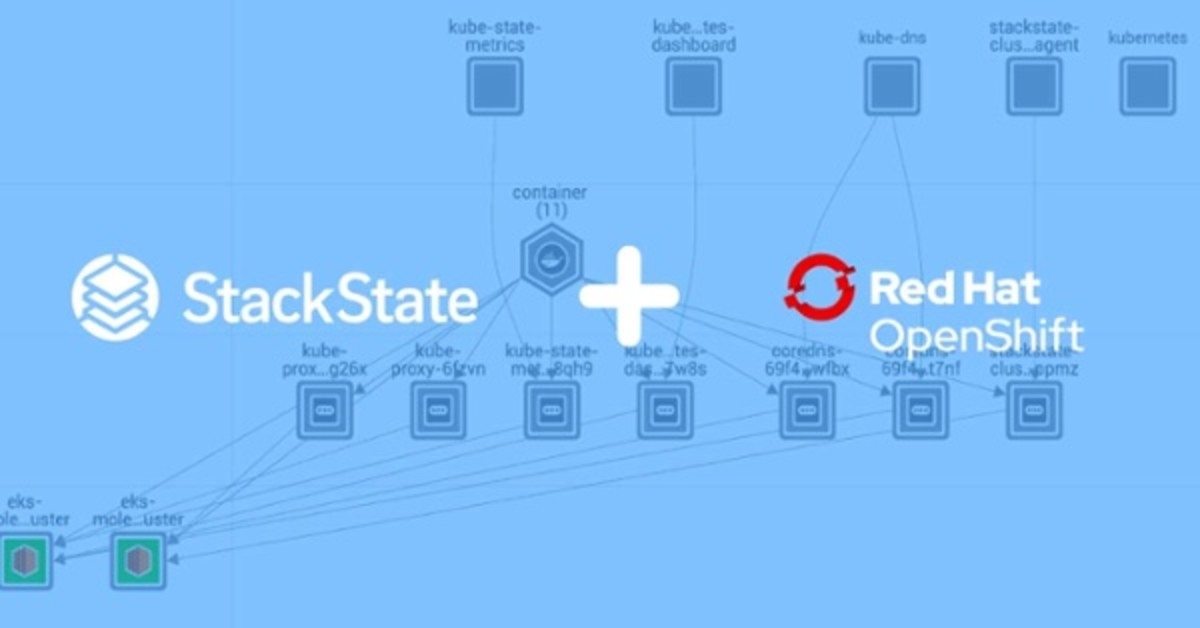What is OpenShift?
The primary product of OpenShift is the OpenShift Container Platform, an enterprise deployment and management platform built around Docker containers orchestrated and managed by Kubernetes, on a foundation of Red Hat Enterprise Linux. OpenShift embeds a community-driven version of Kubernetes called OKD. The platform itself is suitable in various environments: it can be run on-prem inside a company’s own data center, OpenShift Online is the platform offered as a shared service (PaaS), and OpenShift Dedicated is the platform offered as a single-tenant, managed service. "Psst...renowned global research company Gartner has listed all Artificial Intelligence for IT Operations (AIOps) vendors in their New Market Guide. Download your free report right here!"
OpenShift is adopted by companies at a super-fast pace. And these companies are right! Technologies like these have become the standard for running containers in production. But with running containers you’re only halfway there. How are you going to ensure your services do what they need to do and when it is time to scale up or out? Enter StackState…
StackState integration with OpenShift
With its new OpenShift integration, StackState just became a great choice for OpenShift monitoring. StackState will help you to:
Get a real-time and always up-to-date picture of your OpenShift environment, including all pods and services.
Automatically detect and visualize connections between containers so you can see all dependencies.
Track all OpenShift metrics, giving you unprecedented insight into your application health and performance.

See the integration in action
StackState's OpenShift support is a fully integrated addition to the StackState AIOps platform. This means that you can also see how any of your on-prem or cloud-hosted servers interacts with your OpenShift containers.
Starting today, StackState delivers an all-in-one monitoring solution for companies using OpenShift.
Want to learn more or do you have a question? Book a guided tour with one of our StackState experts to answer your questions and explore your needs.


